Curriculum
Our Curriculum
Micklefield CE (VC) Primary Academy Curriculum Overview
Learning and growing together with Faith, Hope and Love
Micklefield CE Primary Academy’s curriculum prepares children to be able to understand and influence the world in which they live. The curriculum is underpinned by our distinct Christian vision and our Christian values of Faith, Hope and Love.
LEARNING AND GROWING TOGETHER WITH FAITH, HOPE AND LOVE
With Faith, anything is possible
Believe in yourself
With Hope, all things are brighter
Believe in your future
With Love, we are never alone
Believe in others
Be strong and courageous. Do not be afraid or discouraged. For the Lord your God is with you wherever you go. Joshua 1:9
With God all things are possible. Matthew 19:26
Love is more important than anything else. It’s what ties everything completely together. Colossians 3:14
Our Curriculum has been designed to ensure each and every child can 'live life in all its fullness' by offering stimulating and awe-inspiring learning experiences with our three Christian values (Hope, Faith and Love) at its heart. The curriculum has a strong focus on securing a deep understanding of all relevant knowledge and skills. It is designed to have a rigorous focus on developing core skills in English and mathematics, whilst also developing young people with a clear understanding of the positive role they can play in shaping the world around them.
We want our children to be:
Confident Citizens Community Citizens Conscious Citizens
Core skills Heritage Independent learners
Language Citizenship Aspirational
Love of Reading Christian Ethos Resilient
Outdoor learning Cultural Capital Belonging to the world around them
Our curriculum will ensure children develop as collaborative, resilient learners who, as they move from one stage of school to the next, take an increasing responsibility for their learning. Integral to the curriculum are our drivers that teach the children the knowledge, values and qualities that will help them be Confident, Community and Conscious citizens who can make positive choices and flourish.
At the heart of our curriculum is our intention for all children to be excellent readers. Books that are high quality in content and cover relevant themes and issues will be used to drive and inspire our children’s love of reading. Their reading skills will be prioritised as the key that enables them to be successful learners across all aspects of the curriculum.
If you wish to know more about our curriculum please contact Emma Cook (Headteacher and Curriculum Lead) via the office.
EARLY YEARS & FOUNDATION STAGE
Learning through Play
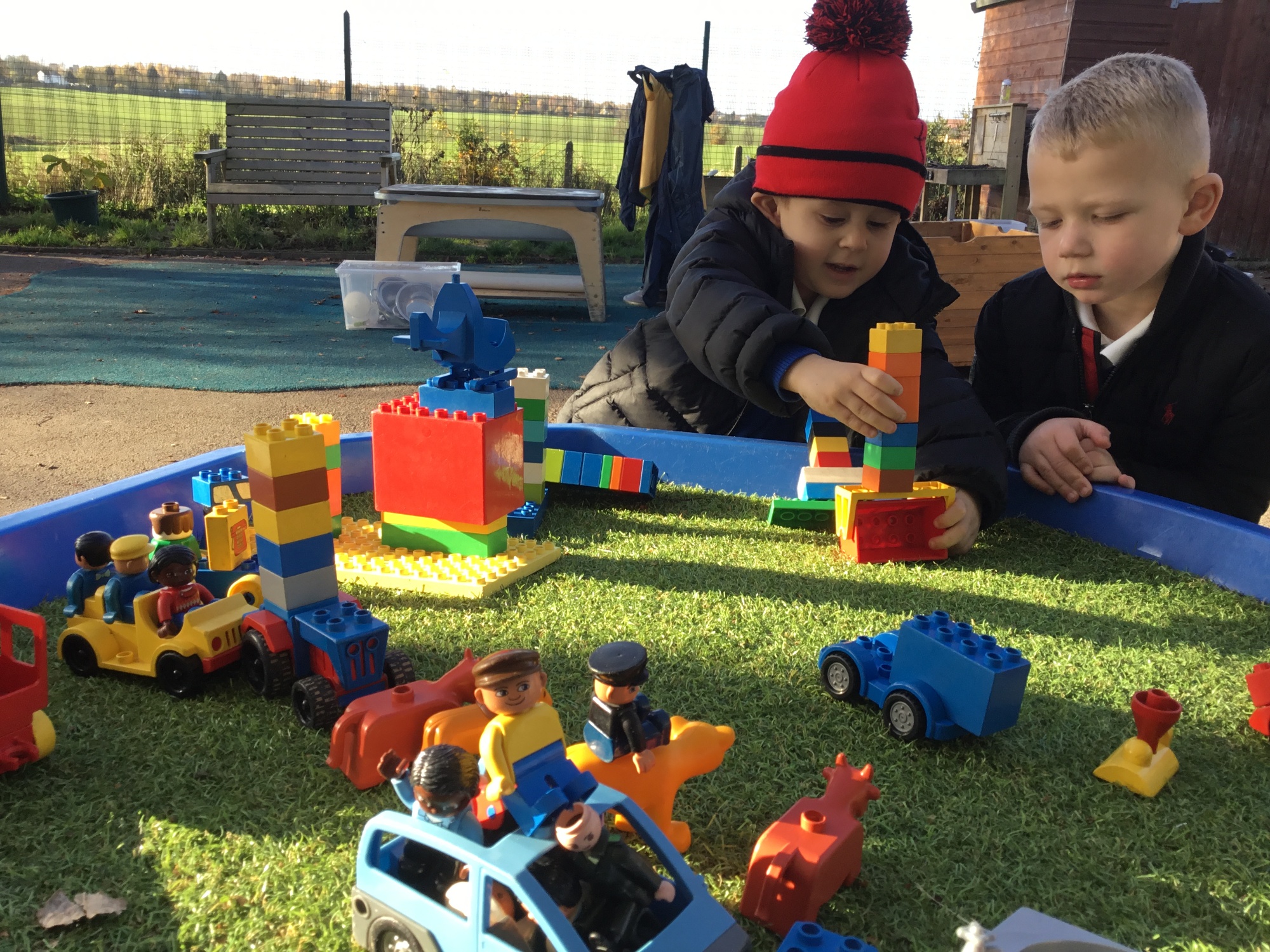 We follow The Early Years Foundation Stage Curriculum. This framework is a means of ensuring high standards of early education and care that enables each child’s development to be fully supported. It underpins all future learning by supporting and fostering your children’s personal, social and emotional wellbeing. It encourages positive attitudes and dispositions towards learning in your children and promotes learning through play. Well-planned and well-resourced play activities allow for progression in children’s thinking and understanding from birth. Through our observations, assessment and professional judgement we gain valuable insights into how each child learns best. This information informs our planning to meet the needs of each individual child. Progression in play comes about as a result of a real understanding of the interests, needs and experiences of each child.
We follow The Early Years Foundation Stage Curriculum. This framework is a means of ensuring high standards of early education and care that enables each child’s development to be fully supported. It underpins all future learning by supporting and fostering your children’s personal, social and emotional wellbeing. It encourages positive attitudes and dispositions towards learning in your children and promotes learning through play. Well-planned and well-resourced play activities allow for progression in children’s thinking and understanding from birth. Through our observations, assessment and professional judgement we gain valuable insights into how each child learns best. This information informs our planning to meet the needs of each individual child. Progression in play comes about as a result of a real understanding of the interests, needs and experiences of each child.
Every day, there are opportunities for the children to choose from a range of activities, both indoors and outdoors, where they can explore, experiment, learn and develop. Writing and Mathematics are encouraged throughout all activities, where possible, in meaningful contexts to support children’s understanding of its relevance in real life. We create a happy and caring environment where all children feel valued and relaxed and where they have the opportunity to develop positive relationships with all the adults who care for them. Our curriculum is planned with opportunities for all children to learn to collaborate, cooperate and explore. Every area is planned to ignite children’s interests, deepen their understanding and equip them with transferable skills. We teach children to love challenges, be intrigued by mistakes, enjoy effort, and keep on learning.
Prime Areas
Communication and language
Listening and attention: children listen attentively in a range of situations. They listen to stories, accurately anticipating key events and respond to what they hear with relevant comments, questions or actions. They give their attention to what others say and respond appropriately, while engaged in another activity.
Understanding: children follow instructions involving several ideas or actions. They answer ‘how’ and ‘why’ questions about their experiences and in response to stories or events.
Speaking: children express themselves effectively, showing awareness of listeners’ needs. They use past, present and future forms accurately when talking about events that have happened or are to happen in the future. They develop their own narratives and explanations by connecting ideas or events.
Physical development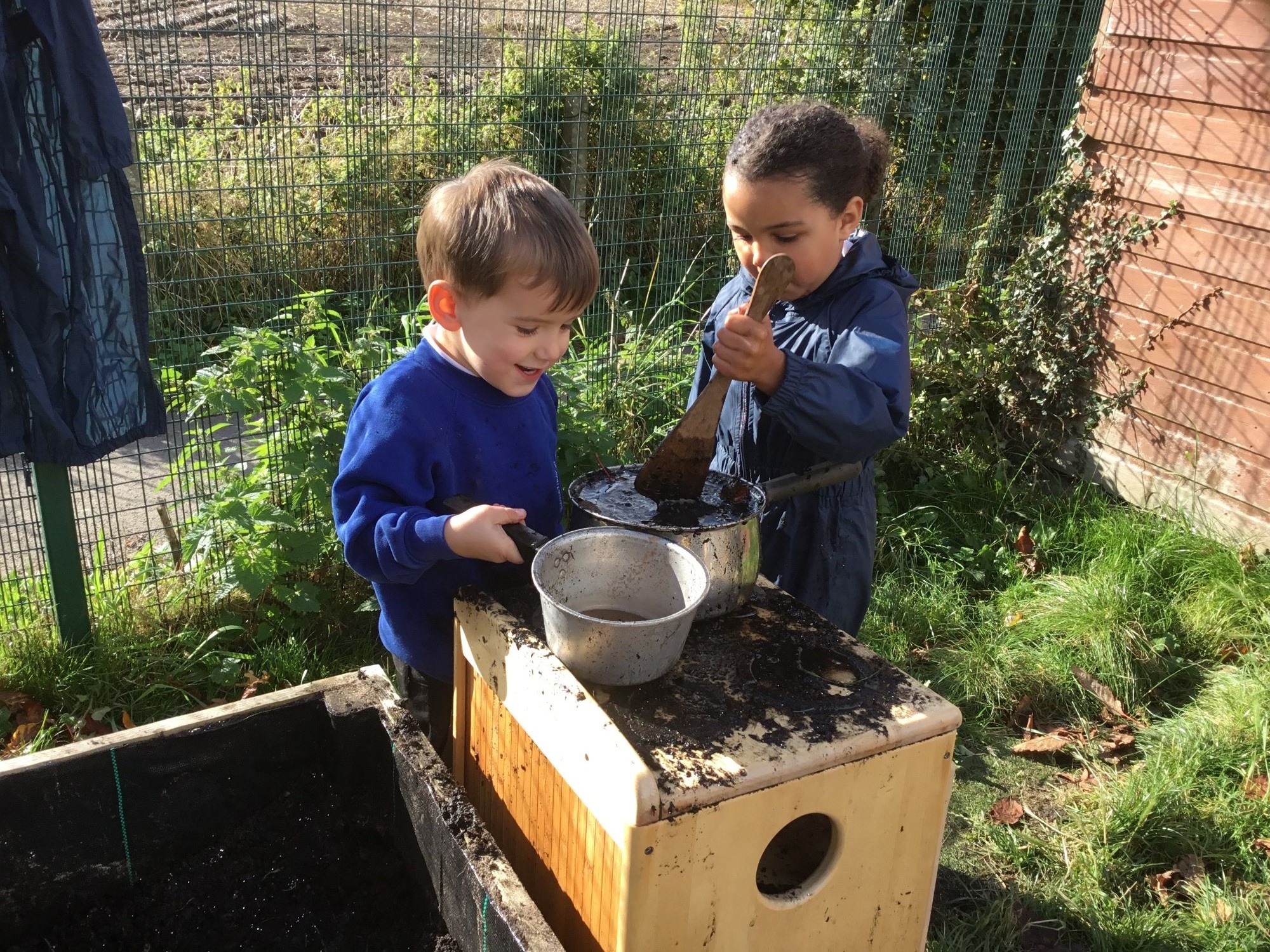
Moving and handling: children show good control and co-ordination in large and small movements. They move confidently in a range of ways, safely negotiating space. They handle equipment and tools effectively, including pencils for writing.
Health and self-care: children know the importance for good health of physical exercise, and a healthy diet, and talk about ways to keep healthy and safe. They manage their own basic hygiene and personal needs successfully, including dressing and going to the toilet independently.
Personal, social and emotional development
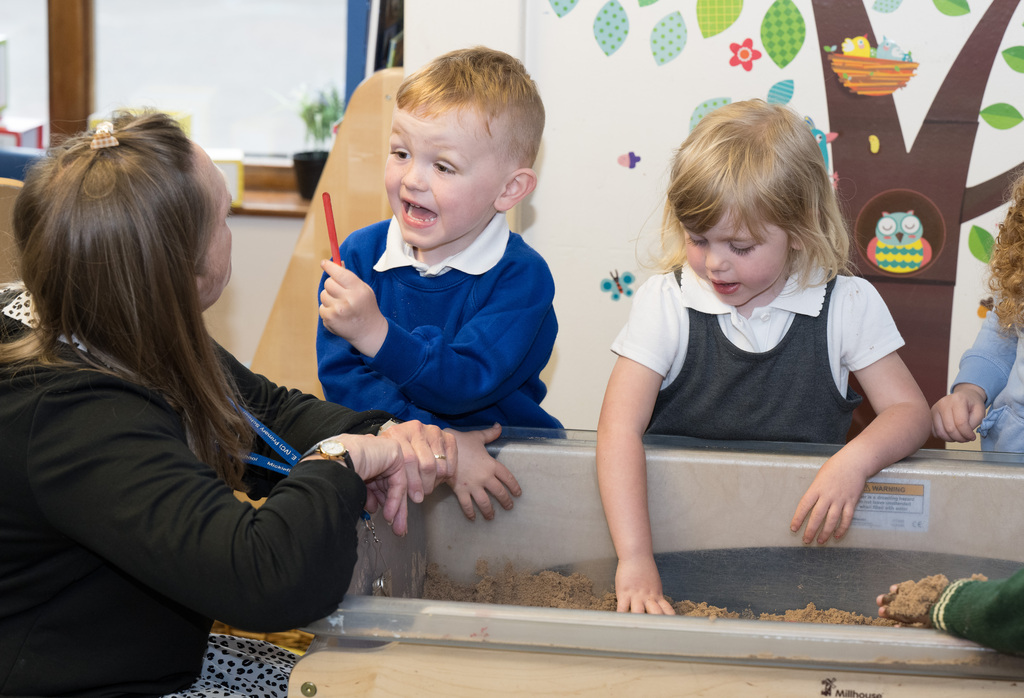 Self-confidence and self-awareness: children are confident to try new activities, and say why they like some activities more than others. They are confident to speak in a familiar group, will talk about their ideas, and will choose the resources they need for their chosen activities. They say when they do or don’t need help.
Self-confidence and self-awareness: children are confident to try new activities, and say why they like some activities more than others. They are confident to speak in a familiar group, will talk about their ideas, and will choose the resources they need for their chosen activities. They say when they do or don’t need help.
Managing feelings and behaviour: children talk about how they and others show feelings, talk about their own and others’ behaviour, and its consequences, and know that some behaviour is unacceptable. They work as part of a group or class, and understand and follow the rules. They adjust their behaviour to different situations, and take changes of routine in their stride.
Making relationships: children play co-operatively, taking turns with others. They take account of one another’s ideas about how to organise their activity. They show sensitivity to others’ needs and feelings, and form positive relationships with adults and other children.
Specific Areas
Literacy
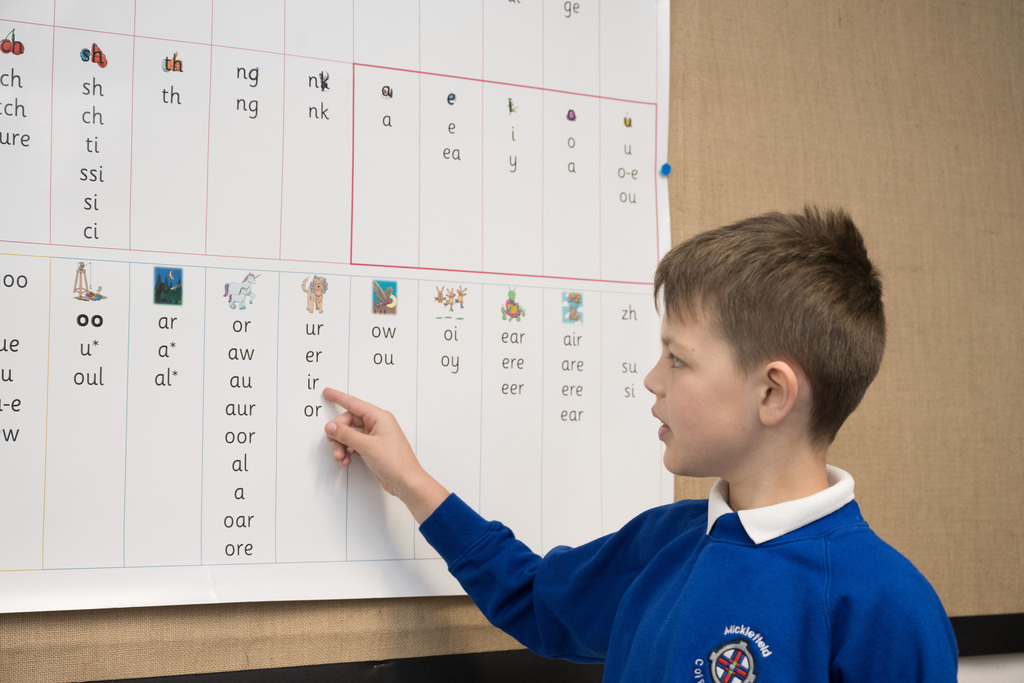 Reading: children read and understand simple sentences. They use phonic knowledge to decode regular words and read them aloud accurately. They also read some common irregular words. They demonstrate understanding when talking with others about what they have read (at the bottom of this page is a link to a site which can help you practise phonics).
Reading: children read and understand simple sentences. They use phonic knowledge to decode regular words and read them aloud accurately. They also read some common irregular words. They demonstrate understanding when talking with others about what they have read (at the bottom of this page is a link to a site which can help you practise phonics).
Writing: children use their phonic knowledge to write words in ways which match their spoken sounds. They also write some irregular common words. They write simple sentences which can be read by themselves and others. Some words are spelt correctly and others are phonetically plausible.
Mathematics
Numbers: children count reliably with numbers from 1 to 20, place them in order and say which number is one more or one less than a given number. Using quantities and objects, they add and subtract two single-digit numbers and count on or back to find the answer. They solve problems, including doubling, halving and sharing.
Shape, space and measures: children use everyday language to talk about size, weight, capacity, position, distance, time and money to compare quantities and objects and to solve problems. They recognise, create and describe patterns. They explore characteristics of everyday objects and shapes and use mathematical language to describe them.
Understanding the world
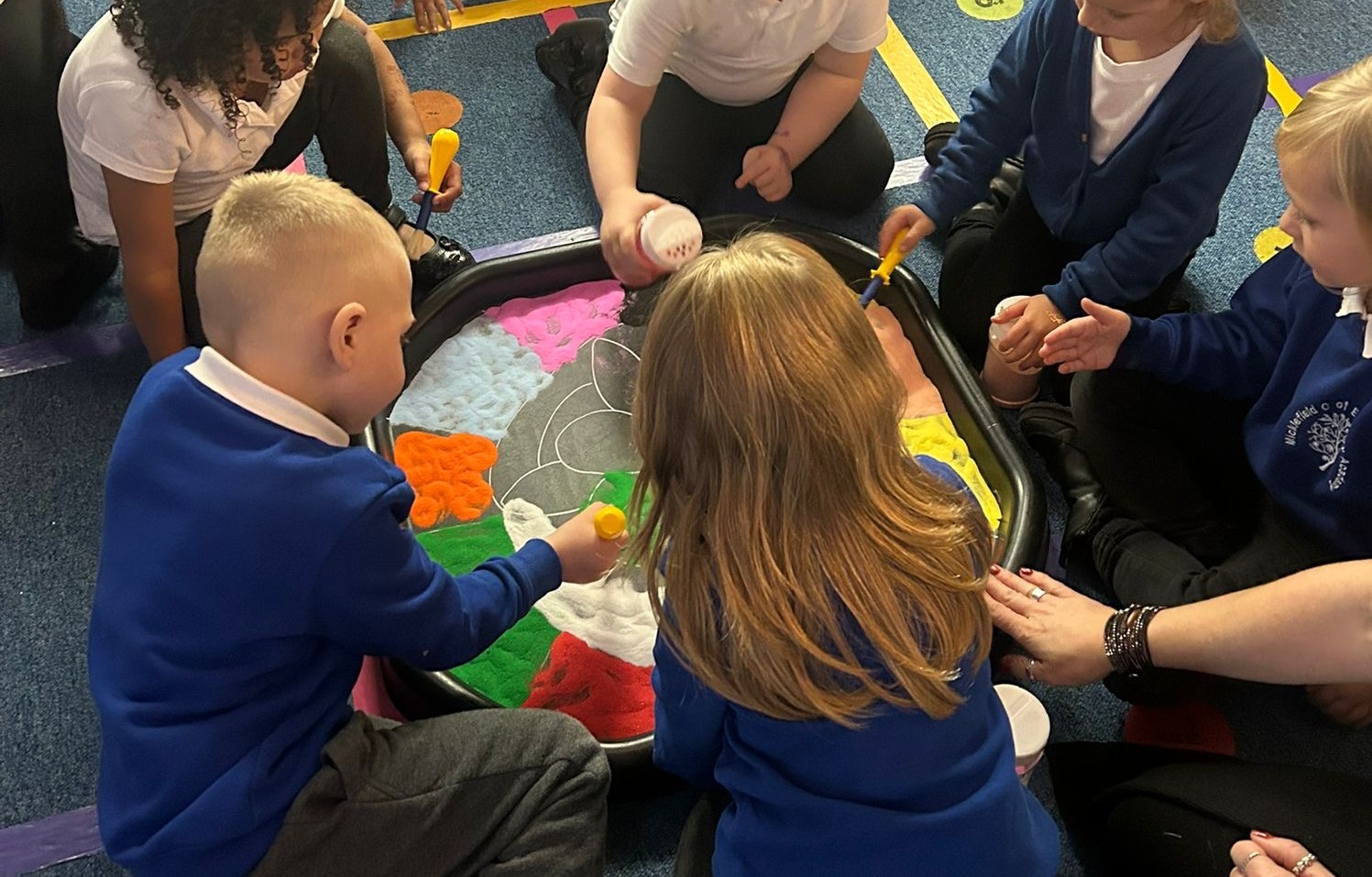
The world: children know about similarities and differences in relation to places, objects, materials and living things. They talk about the features of their own immediate environment and how environments might vary from one another. They make observations of animals and plants and explain why some things occur, and talk about changes.
Technology: children recognise that a range of technology is used in places such as homes and schools. They select and use technology for particular purposes.
Expressive arts and design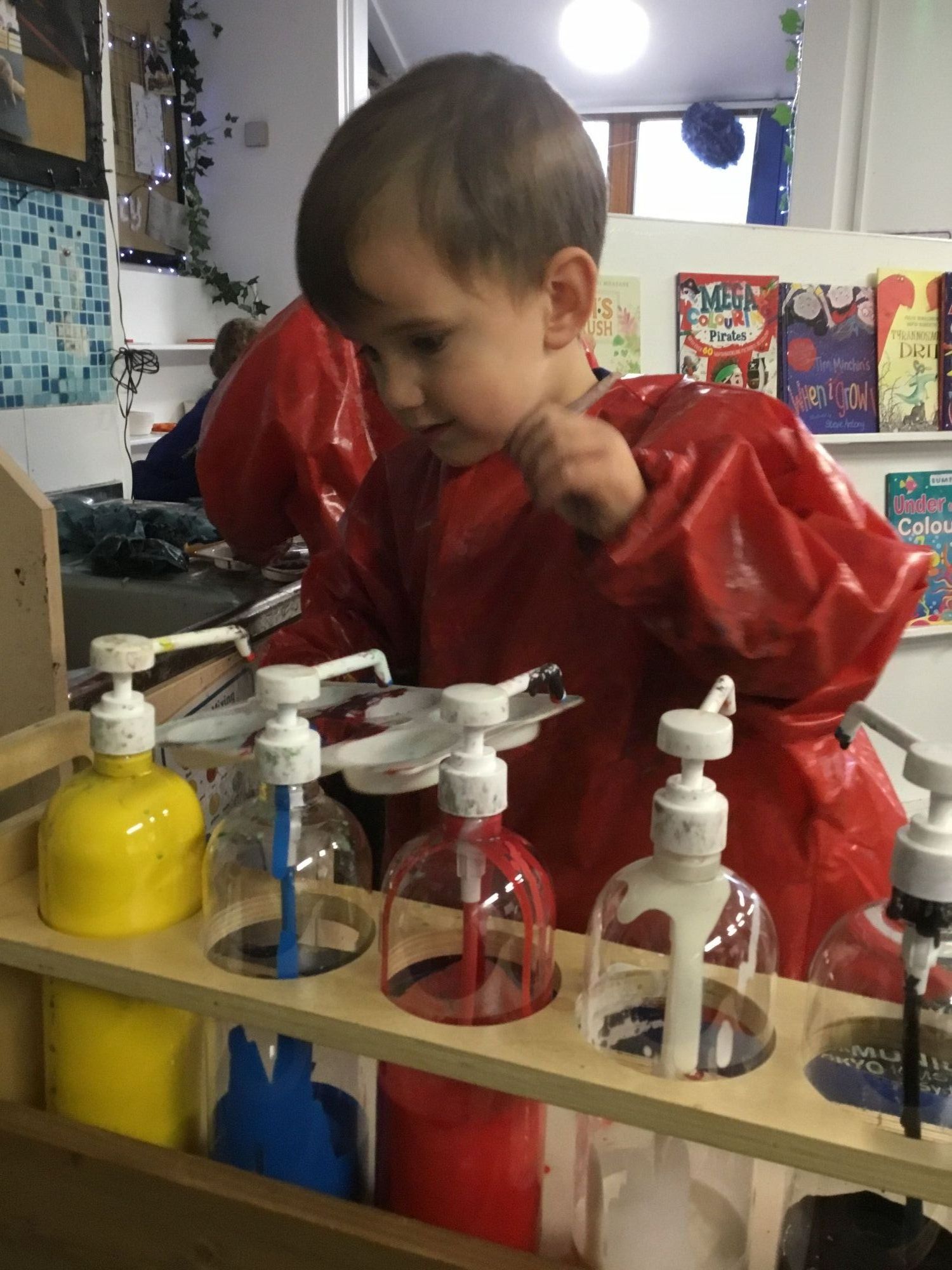
Exploring and using media and materials: children sing songs, make music and dance, and experiment with ways of changing them. They safely use and explore a variety of materials, tools and techniques, experimenting with colour, design, texture, form and function.
Being imaginative: children use what they have learnt about media and materials in original ways, thinking about uses and purposes. They represent their own ideas, thoughts and feelings through design and technology, art, music, dance, role-play and stories.
Characteristics of Effective Learning
Playing and exploring
Finding out and exploring
- Does your child show curiosity about objects, events and people?
- Does your child use their senses to explore the world around them? Any sense perhaps used more than others?
- Does your child engage in open-ended activities?
- Does your child show particular interests? In what?
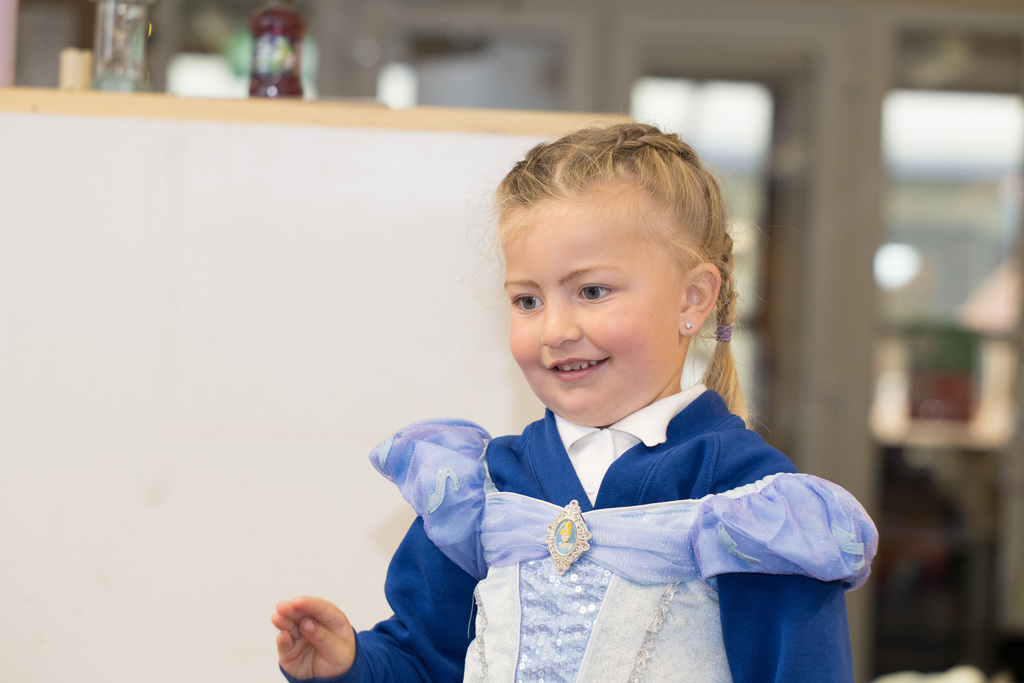 Playing with what they know
Playing with what they know
- Does your child pretend objects are things from their experience?
- How does your child represent their experiences in their play?
- Does your child take on a role in their play? Any particular role?
- Does your child act out experiences with others (children or adults)?
Being willing to have a go
- Does your child initiate activities/experiences? What kind of activities/experiences?
- How does your child seek challenges?
- Does your child show a ‘can do’ attitude?
- Does your child take risks, engage in new experiences and learn by trial and error?
Active learning
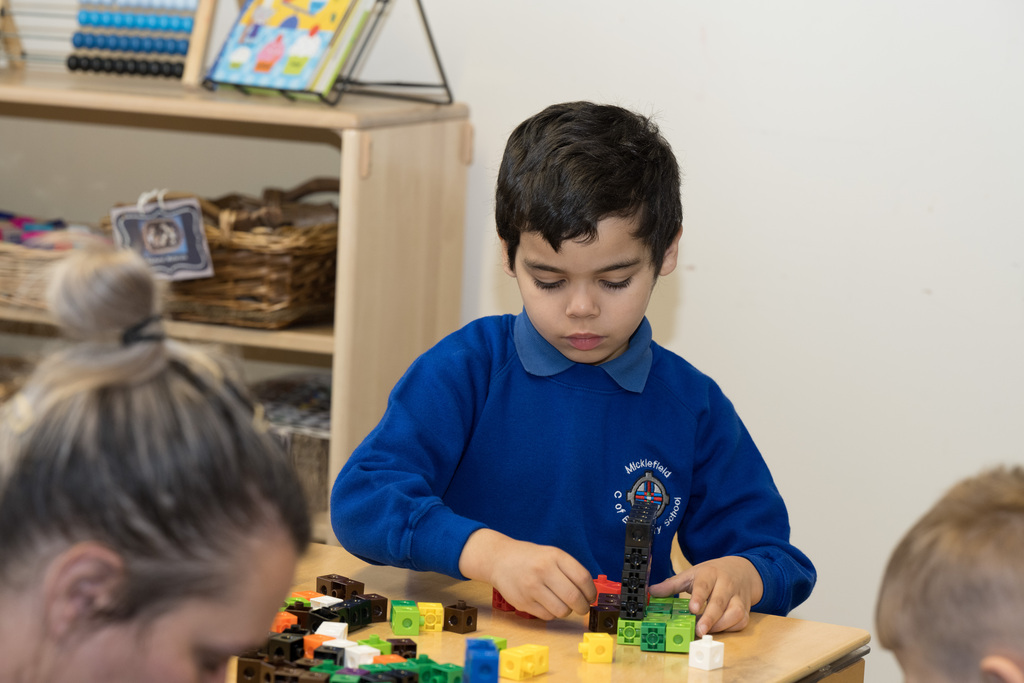 Being involved and concentrating
Being involved and concentrating
- Does your child maintain focus on their activity for a period of time? Is this at any activity or always at a particular activity or area in the environment?
- Does your child show high levels of energy, fascination?
- Does your child concentrate despite distractions?
- Does your child pay attention to details?
Keeping on trying
- Does your child show persistence with an activity when faced with challenges?
- Does your child demonstrate aspects of problem solving and show a belief that more effort or a different approach will work/pay off?
- Does your child bounce back after difficulties?
Enjoying achieving what they set out to do
- Is he/she proud of their accomplishments- not just the end result?
- Does your child enjoy meeting challenges for their own sake rather than for rewards or praise?
Creating and thinking critically
Having their own ideas
- Does your child think of ideas?
- How does your child find ways to solve problems?
- Does your child find new ways of doing things?
Making links
- Does your child make links and notice patterns in their experience?
- Does your child make predictions?
- How does your child test out their ideas?
- Does your child develop ideas of grouping, sequencing, cause and effect?
Choosing ways to do things
- Does your child plan, make decisions about how to do something, solve a problem to reach a goal?
- Does your child check how well their activity or what they are doing is going?
- Does your child change strategy if needed? Or does your child always do what he/she knows?
- Does your child review how well their approach worked? With support or on their own?
KS1 & KS2
English
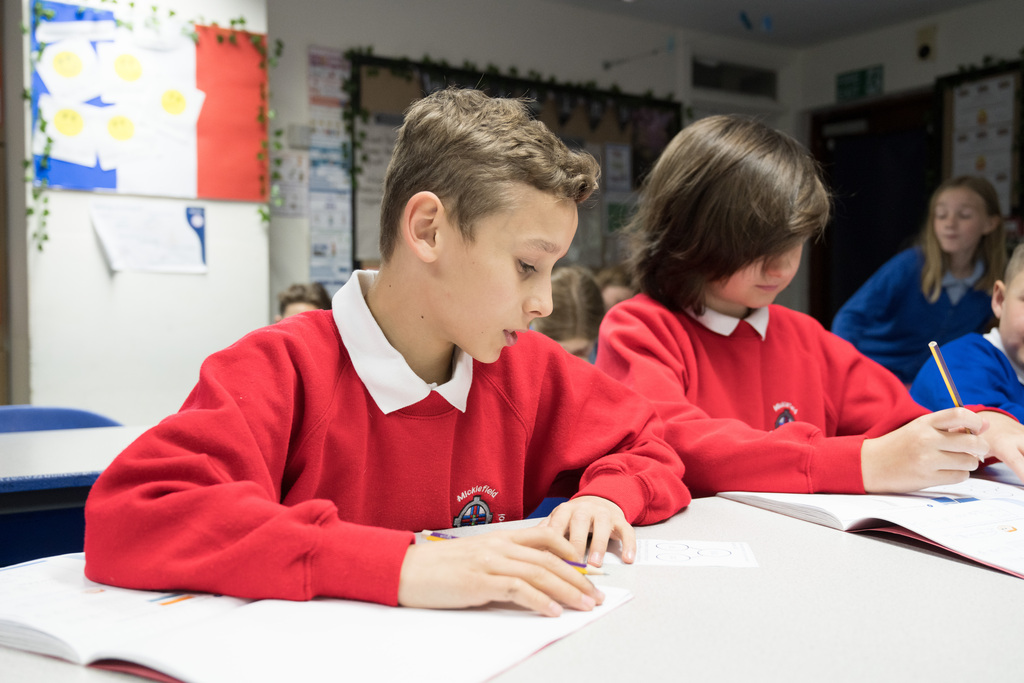 We believe that literacy and communication are key life skills and through our English curriculum we enable children to develop the skills and knowledge that will enable them to communicate effectively and creatively through spoken and written language. We intend to provide our children with a language rich environment, where speaking and listening, reading, and writing are integral to all we do.
We believe that literacy and communication are key life skills and through our English curriculum we enable children to develop the skills and knowledge that will enable them to communicate effectively and creatively through spoken and written language. We intend to provide our children with a language rich environment, where speaking and listening, reading, and writing are integral to all we do.
As communicators, our children will:
- Use discussion to learn and be able to elaborate and clearly explain their understanding and ideas
- Acquire a wide vocabulary, an understanding of grammar and knowledge of linguistic conventions for spoken language
- Develop competence in the art of speaking and listening, making formal presentations, demonstrating to others, and participating in debate.
As readers our children will:
- Develop strong phonic knowledge
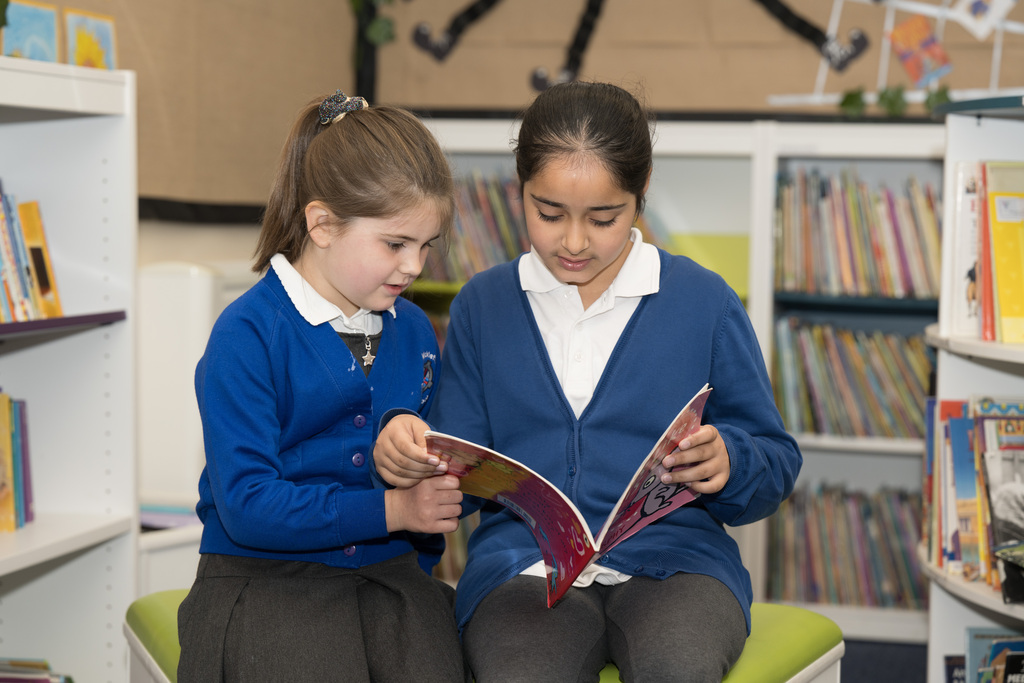 and skills
and skills - Develop fluency and accuracy in reading across a wide range of contexts throughout the curriculum
- Acquire a wide vocabulary, an understanding of grammar and knowledge of linguistic conventions for reading
- Have an excellent comprehension and understanding of texts read
- Be enthusiastic readers, motivated to read for both pleasure and information
- Experience a rich and varied range of texts
- Develop a love of reading
As writers our children will:
- Develop strong transcription skills that ensure their writing is well presented and punctuated, spelled correctly and neat.
- Produce well organised and structured pieces of writing which includes a variety of sentence structures
- Be aware of an audience and purpose when writing in a range of styles and genres
- Write fluently with interesting detail on a range of topics throughout the curriculum
- Acquire a wide vocabulary, an understanding of grammar and knowledge of linguistic conventions for writing
- Use a wide range of high-quality texts to ignite their interest and imagination
Phonics and Spelling at Micklefield
Every Reception and KS1 child takes part in a daily phonics session, following the Little Wandle programme.
Initially, children's listening skills are developed through the use of music, environmental sounds and rhyme. In Foundation Stage, children are introduced to phonemes (sounds) linked to the letters of the alphabet, as well as one way of spelling each of the other 16 phonemes used in the English language, such as 'igh' and 'ch'. Children are taught to blend or sound out phonics to read a variety of words and segment or break down the sounds in simple words for spelling.
In Year 1, children learn more about the variety of ways in which each phoneme can be spelled and they also learn about the different pronunciations made by different letters or groups of letters, such as 'a' in 'ant' and 'was'. At the end of Year 1, children will be tested on their phonics knowledge, using a national test featuring 20 real words and 20 pseudo-words (nonsense).
From Year 2 onwards, children consolidate their phonics knowledge, learning when to apply different spelling rules as well as how to spell plurals and different verb tenses.
In KS2, children are taught the spelling rules applicable to their year group, as well as the statutory words listed in the National Curriculum.
Parents can access more information on how to help their child at home here.
Reading at Micklefield
Every child takes part in a guided reading session daily.
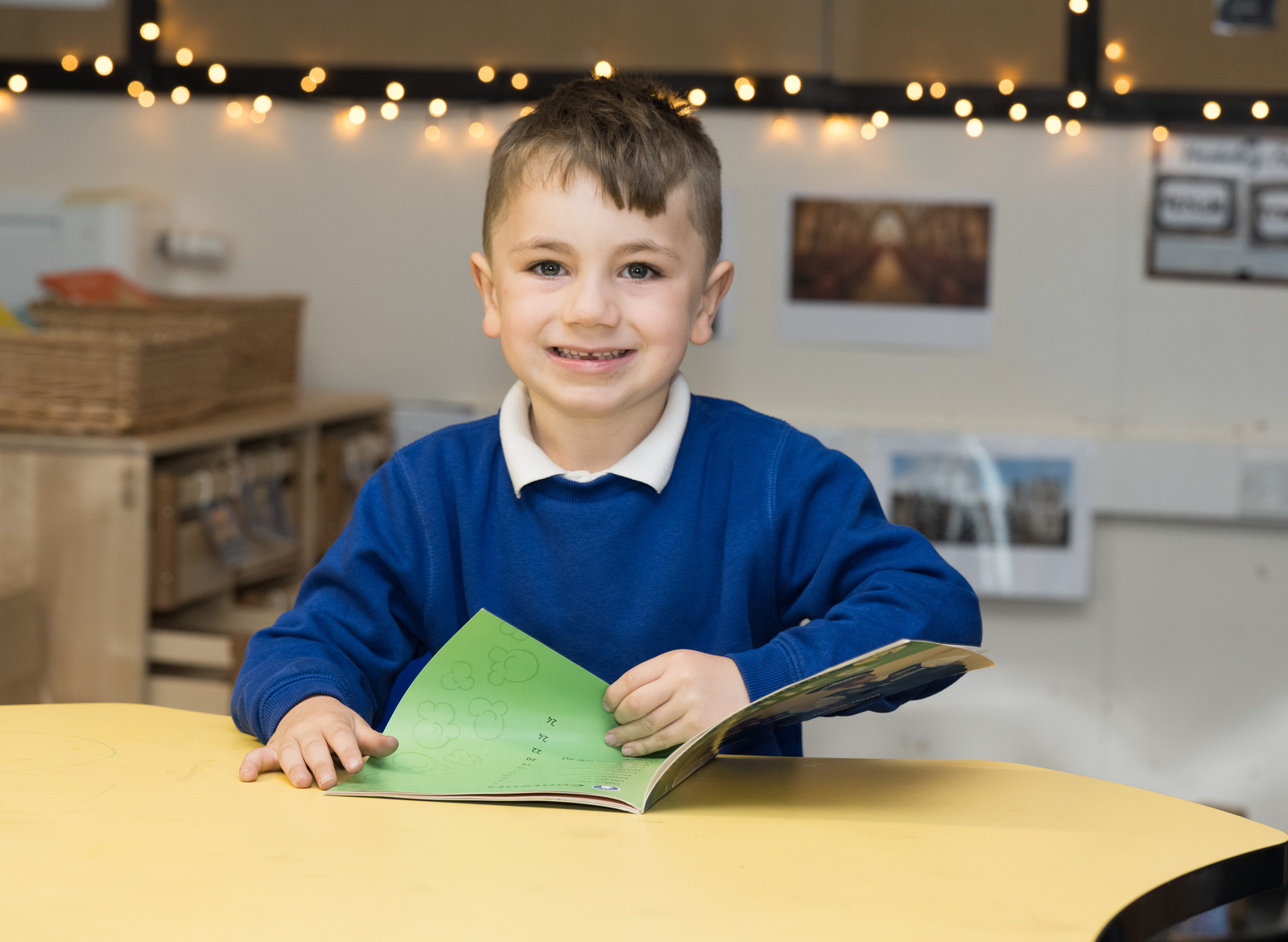 In Reception and KS1, we follow Little Wandle Letters and Sounds Phonics Scheme. Children read phonically decodable books. Children are assessed and grouped by phonics ability so that the book is the right level for them. Fluency is a big focus – reading at a good speed and with expression.
In Reception and KS1, we follow Little Wandle Letters and Sounds Phonics Scheme. Children read phonically decodable books. Children are assessed and grouped by phonics ability so that the book is the right level for them. Fluency is a big focus – reading at a good speed and with expression.
We use Big Cat books. These give a variety of fiction and non–fiction books to develop children’s reading range. Once they finish the reading scheme, we encourage them to become ‘free readers’ and choose their own books. Thanks to Friends of Micklefield, our school library now has a significant variety of books to encourage children to access a range of texts suited to their own personal interests.
When KS2 children are reading fluently, their guided reading becomes a whole class approach. A high quality text is shared each half-term, through individual, paired, group and modelled reading, and specific comprehension skills are taught.
Children are prepared for the Year 2 and Year 6 SATS by completing past papers, and similar papers. This involves reading and answering comprehension questions based on the text.
Pupils are given opportunities to read in a variety of curriculum areas during topic lessons where they can apply the skills that they have developed during guided reading.
Children in all year groups also enjoy a daily story time.
Reading together at home is one of the easiest but most important ways in which you can help your child.
Writing at Micklefield
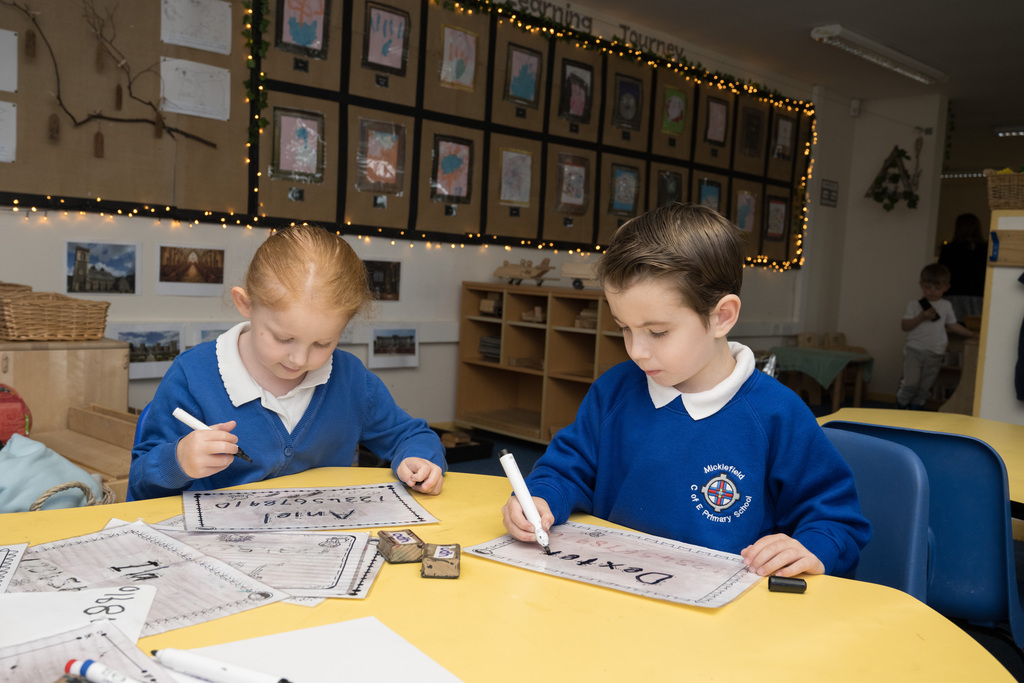
In addition to daily guided reading and phonics, children have an English lesson every day.
From the Autumn term of Reception, children practise letter formation in line with the Little Wandle phonics programme. By the Spring term, this progresses to the writing of dictated sentences that are linked to the children’s phonics knowledge. When children are ready, they are encouraged to write sentences that have been composed independently. Writing is based on a high quality shared text.
From the Summer term of Year 1, children follow a writing sequence each week.
Monday: Children are ‘hooked’ and begin to engage with a high quality text.
Tuesday: Children participate in a ‘shared write’ where they help to construct a carefully crafted text that meets the expected outcome. Or, children are presented with a carefully crafted text and they identify the key features.
Wednesday: Children write independently to complete a given task (based on Monday and Tuesday’s input).
Thursday: Based on Wednesday’s independent writing, teachers plan a SPAG focus that is chosen to precisely meet the needs of the children.
Friday: Children work on evaluating and editing their work. At Micklefield, we call this process ‘Arms and Cogs.’
Handwriting is taught daily. It begins with a letter formation focus in line with Little Wandle phonics. This progresses to a semi cursive approach, so letters are joined but there are no leading lines or loops
Mathematics
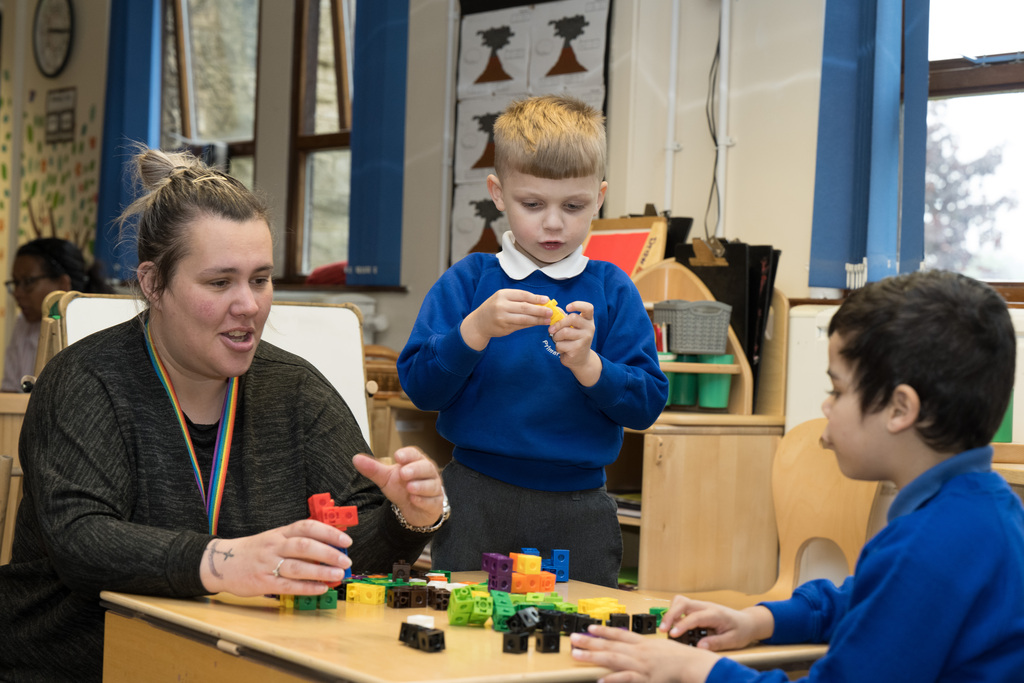 Maths helps us to understand so much about what happens in the world. We want all our pupils to experience enjoyment of Maths and through a positive attitude develop a sense of curiosity about the subject. We believe this will enable all our children to gain a secure and deep understanding of key mathematical concepts.
Maths helps us to understand so much about what happens in the world. We want all our pupils to experience enjoyment of Maths and through a positive attitude develop a sense of curiosity about the subject. We believe this will enable all our children to gain a secure and deep understanding of key mathematical concepts.
As Mathematicians, our children will:
- Develop an understanding of the important mathematical concepts and be able to make connections
- Acquire a broad range of skills in using and applying Mathematics
- Develop a strong knowledge and fluent recall of key number facts and the number system
- Show initiative in solving problems in a wide range of contexts
- Think independently and persevere when faced with challenges, showing confidence of success
- Embrace the value of learning from mistakes made
- Develop the ability to reason, generalise and make sense of solutions
- Become fluent in performing written and mental calculations and mathematical techniques
- Use a wide range of mathematical vocabulary effectively
At Micklefield, we aim to provide children with the means of making sense of the world in which they live. We don’t just teach a set of isolated facts and techniques; at Micklefield, Mathematics is a language which children can use to help interpret the world around them. We encourage their reasoning skills to grow and to apply this to real life and intriguing problems. Within our teaching of Mathematics, we endeavor to develop the mental fluency of mathematical skills in order to further prepare our children and develop their confidence with everyday use.
In order to achieve all of the above we use a Maths Mastery approach to teach Mathematics using a variety of teaching techniques and resources. Teachers use the White Rose Maths Hub schemes of learning and NCETM materials to support their medium term planning. They support a mastery approach to teaching and learning and have number at their heart.
Maths Mastery
We are of the belief that all children are capable of achieving high standards and challenge is part of everyday Maths for all our pupils. A mastery curriculum incorporates the 5 big ideas; Fluency, Mathematical Thinking, use of Representation and Structure, Procedural and Conceptual Variation and Coherence into every Maths lesson.
Mastery teaching addresses the needs of all children on a daily basis; support is provided, when appropriate, through same day intervention for those who did not grasp concepts and challenge is provided through depth of both planned activities and higher questioning for those for whom concepts were well understood.
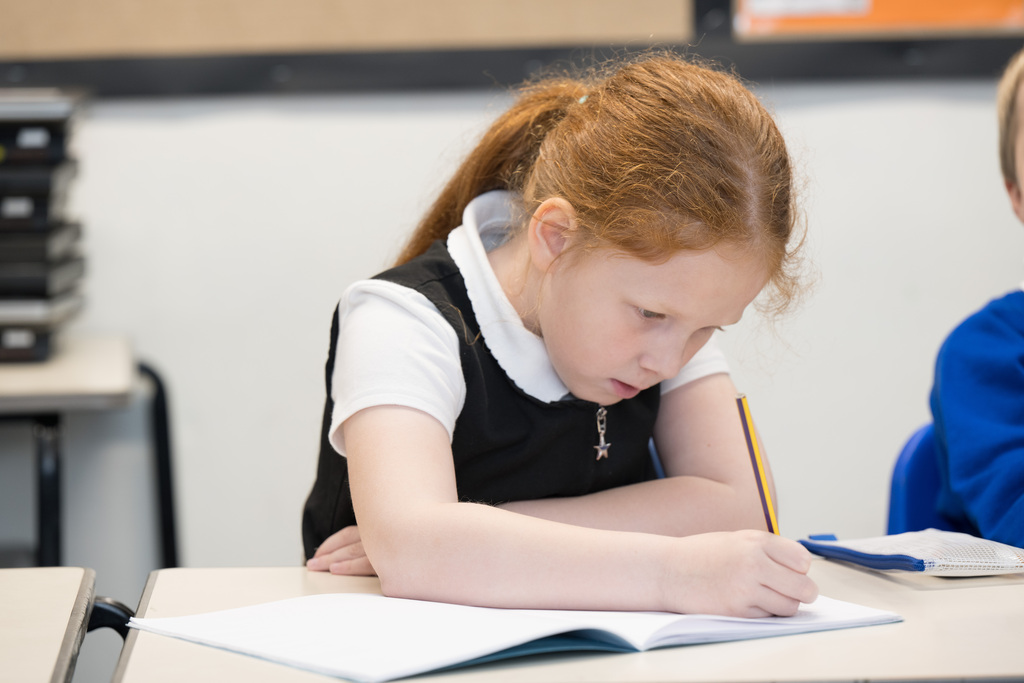 Fluency
Fluency
We aim to ensure that all children become fluent in the fundamentals of Mathematics. Through the mastery approach, we provide all children with the opportunity to develop procedural and conceptual fluency. Children are required to reason and make connections between calculations. The connections made improve their fluency.
For example: Don’t count, calculate
Young children benefit at an early stage to start calculating, rather than relying on ‘counting on’ as a way of calculating.
4+7=
Rather than starting at 4 and counting on 7, children can use their knowledge of number facts and bridge to 10 to deduce that because 4+6=10, so 4+7 must equal 11.
Reasoning – Mathematical Thinking
All children are expected to respond using mathematical vocabulary in full sentences explaining their thinking, this is developed through questioning and the use of sentence stems. Through reasoning, children are able to extend their understanding beyond arithmetic.
Progression in reasoning can be seen in lessons by the use of carefully scaffolded and differentiated questions:
- Describing – saying what happened, What do you notice? What do you see?
- Explaining – beginning to offer reasons for what was done. What do you wonder?
- Convincing – confident that the chain of reasoning is right. What do you know?
- Justfiying – a correct logical argument which has a complete chain of reasoning to it. How do you know?
- Proving – a watertight argument that is mathematically sound. What if?
- For example: Consecutive numbers
If I add three consecutive numbers, will I get an odd or an even answer?
Children can use apparatus to explore this. Can you prove that you are right? Ideas such as this can be explored with increasing depth as children progress through school and their reasoning skills develop.
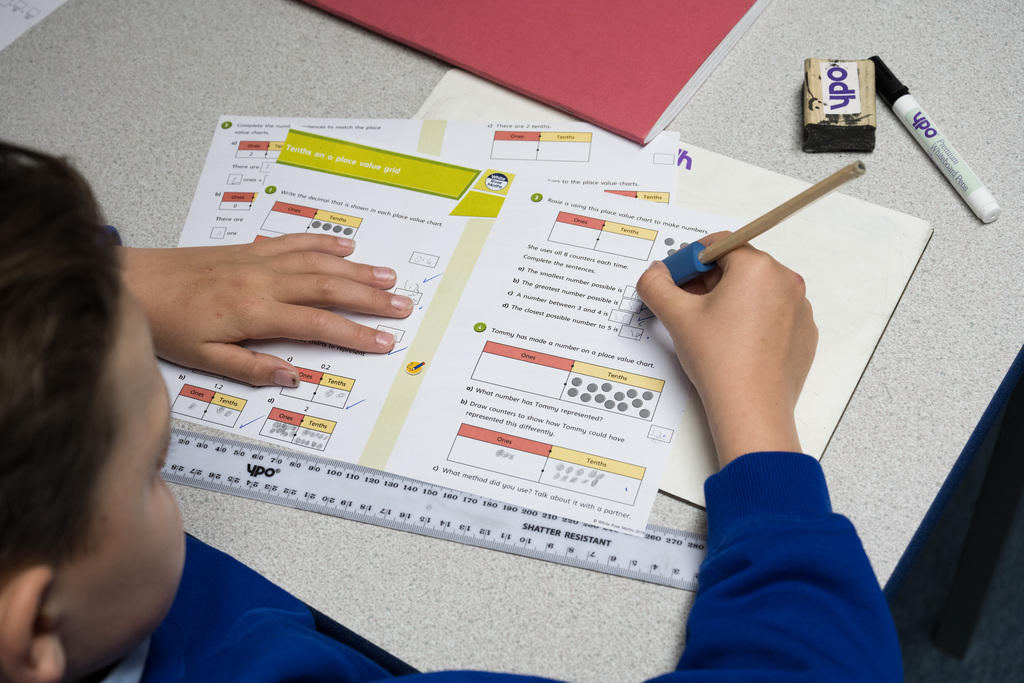
Problem Solving
Children are given opportunity to apply their Mathematics to a variety of routine and non-routine problems with increasing sophistication, including breaking down problems into a series of simpler steps and persevering in seeking solutions. Planning ensure that problems are designed to deepen children’s understanding of essential concepts.
For example: Developing children’s understanding of the = symbol
The symbol = is an assertion of equivalence. If we write: 3+4=6+1 then we are saying that what is on the left of the = symbol is necessarily equivalent to what is on the right of the symbol. But many children interpret = as being simply an instruction to evaluate a calculation, as a result of seeing it used thus:
If children only think of = as meaning ‘work out the answer to this calculation’ then they are likely to get confused by empty box questions such as: 3+ =8. Later they are very likely to struggle with simple algebraic equations, such as: 3y=18. Therefore, children are taught to answer empty box problems with variation of the position of the = sign from an early age.
In our Maths lessons you will see:
- Children using practical resources such as place value counters and numicon
- Children using a variety of pictorial representations, such as the bar method
- Teachers with sentence repetition and children answering in full sentences using sentence stems
- Lots of practical Maths and problem solving based on real life experiences
- Open ended problems, challenges and differentiated questioning
- A ‘I do, we do, you do’ approach
Through our Maths teaching we aim to:
- Create an environment where children learn from mistakes and misconceptions
- Develop children’s understanding of number, mathematical reasoning and problem solving skills
- Challenge all children
- Develop children’s confidence and enjoyment of Mathematics
Science
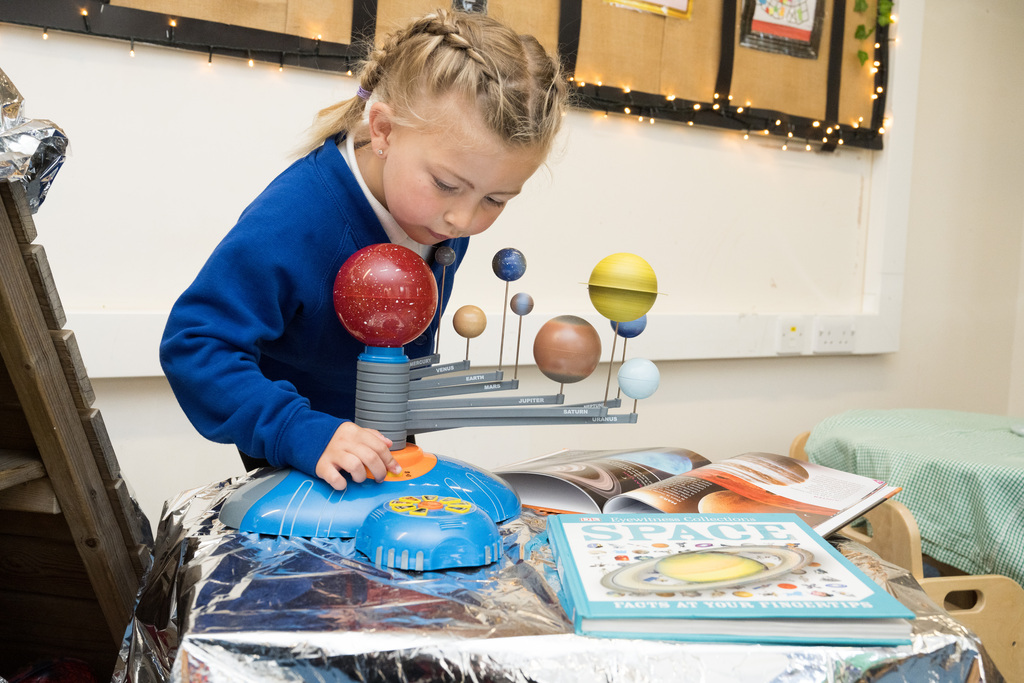 Our science curriculum aims to provide the foundations for understanding the world through the specific disciplines of biology, chemistry and physics and develop a sense of excitement and curiosity about natural phenomena.
Our science curriculum aims to provide the foundations for understanding the world through the specific disciplines of biology, chemistry and physics and develop a sense of excitement and curiosity about natural phenomena.
As scientists our children will:
- Develop scientific knowledge and conceptual understanding through the specific disciplines of biology, chemistry and physics
- Develop an understanding of the nature, processes and methods of science through different types of science enquiries
- Plan and carry out a range of scientific investigations showing a growing confidence and competence of a wide range of practical science skills
- Answer scientific questions about the world around them
- Acquire the scientific knowledge required to understand the uses and implications of science, today and for the future.
RE
At Micklefield C of E (VC) Primary Academy, pupils and their families can expect a high-quality religious education (RE) curriculum that is rich and varied, enabling learners to acquire a thorough knowledge and understanding of a range of faiths and world views. We teach according to the Leeds Agreed syllabus.
As a church school, the teaching of Christianity is at the heart of our RE curriculum we use Understanding Christianity to give our children a coherent understanding of Christian belief and practice. Through the Understanding Christianity resource, the use of an enquiry approach engages with significant theological concepts and the pupil’s own understanding of the world as part of their wider religious, theological and cultural literacy.
Links with our school vision, and support for pupil’s spiritual, moral, social and cultural (SMSC) development are intrinsic to our RE curriculum and have a significant impact on learners. We provide a wide range of opportunities for learners to understand and to make links between the beliefs, practices and value systems of the range of faiths and world views studied.
This policy has taken into account the latest Statement for Entitlement guidance (2019) and the SIAMS Evaluation Schedule (2018 – updated September 2022)
Our RE Policy can be found here.
Our Long Term Plan for RE can be found here.
The Statement for Entitlement can be found here.
PHSE
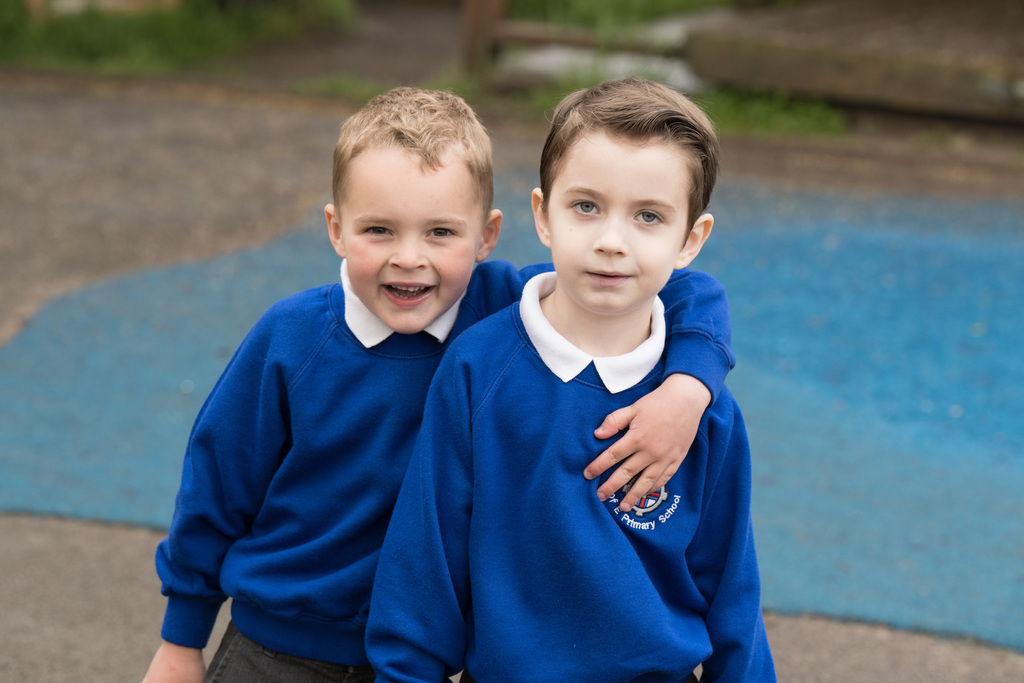 Personal, Social, Health and Economic (PSHE) education is a subject through which pupils develop the knowledge, skills and attributes they need to manage their lives, now and in the future. These skills and attributes help pupils to stay healthy, safe and prepare them for life and work in modern Britain. PSHE education helps pupils to achieve their academic potential, and leave school equipped with skills they will need throughout later life.
Personal, Social, Health and Economic (PSHE) education is a subject through which pupils develop the knowledge, skills and attributes they need to manage their lives, now and in the future. These skills and attributes help pupils to stay healthy, safe and prepare them for life and work in modern Britain. PSHE education helps pupils to achieve their academic potential, and leave school equipped with skills they will need throughout later life.
We use a variety of strategies to engage our pupils.
[Insert PHSE learning styles photo]
What we teach:
Micklefield CE Primary follows the You, Me and PHSE scheme to provide a clear curriculum with meaningful and engaging learning opportunities. As we have mixed aged classes, we teach objectives every other year. However, for Relationship and Sex Education (RSE) and drug, alcohol and tobacco education – these will only be taught to the relevant year group. Our learning covers:
- Keeping safe and managing risk
- Mental health and emotional wellbeing
- Physical health and wellbeing
- Sex and relationship education
- Careers, financial capability and economic wellbeing
- Identity, society and equality
- Drug, alcohol and tobacco education
Computing
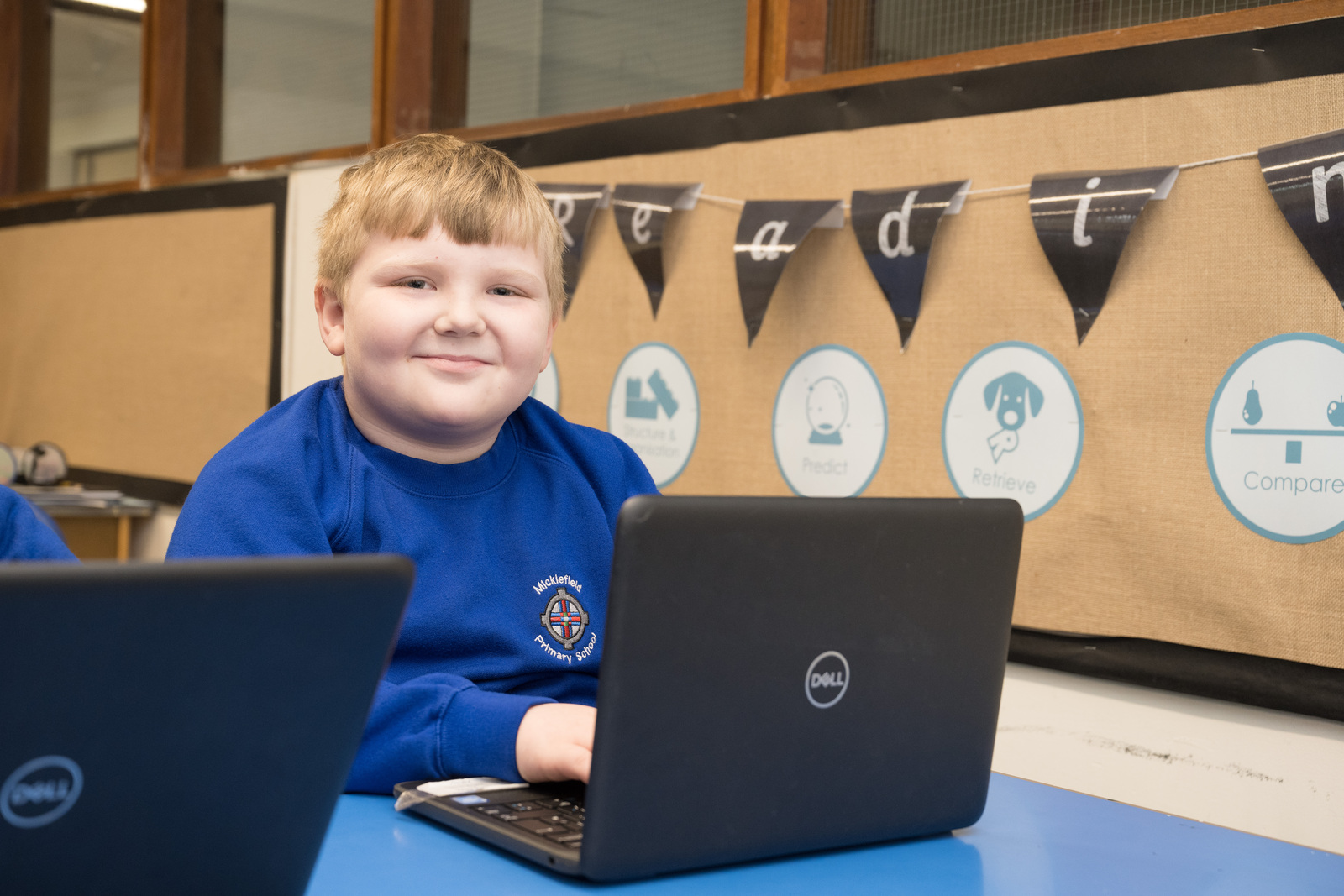 We aim to equip children for the ever-changing digital world and how to keep themselves safe as a discerning digital citizen. Our computing curriculum enables children to have the knowledge and skills to become digital creators as well as users.
We aim to equip children for the ever-changing digital world and how to keep themselves safe as a discerning digital citizen. Our computing curriculum enables children to have the knowledge and skills to become digital creators as well as users.
As effective coders and users of technology our children will:
- Can understand and apply the fundamental principles and concepts of computer science, including abstraction, logic, algorithms, and data representation
- Develop competence in coding for a variety of practical and inventive purposes, can analyse problems in computational terms, and have repeated practical experience of writing computer programs to solve such problems
- Collect, organise, and manipulate data effectively
- Understand the connected nature of devices
- Connect with others safely and respectfully, understanding the need to act within the law and with moral and ethical integrity
- Communicate ideas well by using applications and devices throughout the curriculum
History
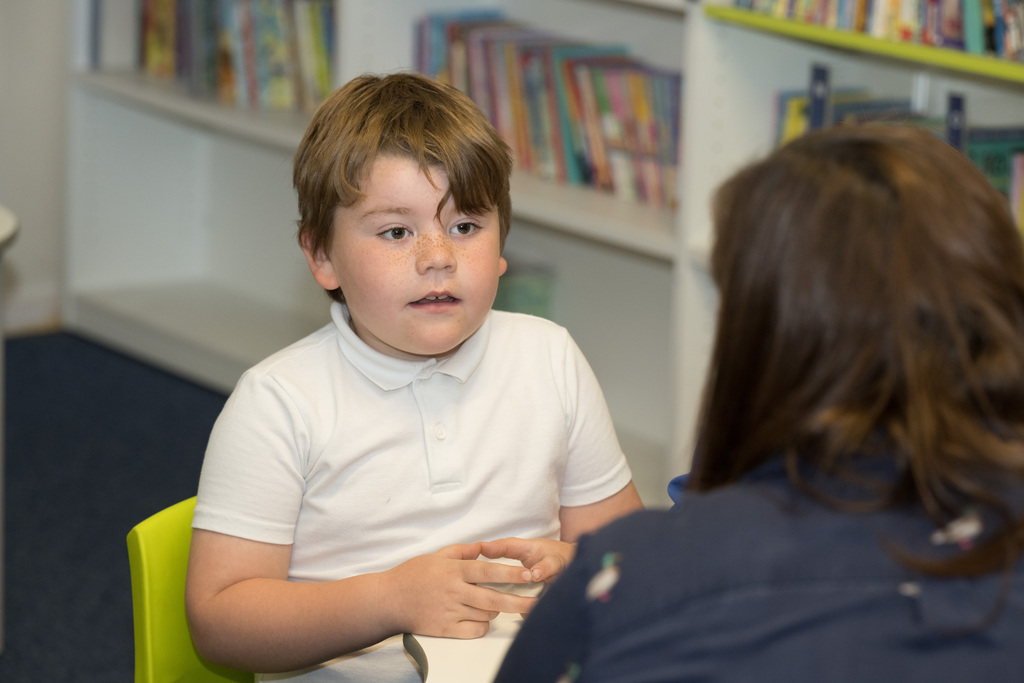 We intend to help pupils gain a coherent knowledge and understanding of Britain’s past and that of the wider world. We want to inspire our children’s curiosity to know more about the past. Through our teaching of history, we aim to help our children to understand the complexity of people’s lives, the process of change, the diversity of societies and relationships between different groups, as well as their own identity and the challenges of their time.
We intend to help pupils gain a coherent knowledge and understanding of Britain’s past and that of the wider world. We want to inspire our children’s curiosity to know more about the past. Through our teaching of history, we aim to help our children to understand the complexity of people’s lives, the process of change, the diversity of societies and relationships between different groups, as well as their own identity and the challenges of their time.
As historians our children will:
- Have an excellent knowledge and understanding of people, events, and contexts from a range of historical periods and of historical concepts and processes
- Think critically about history and communicate ideas confidently in styles appropriate to a range of audiences
- Support, evaluate and challenge their own and others views using detailed, appropriate and accurate historical evidence derived from a range of sources
- Think, reflect, debate, discuss and evaluate the past, formulating and refining questions and lines of enquiry
- Develop a passion and enthusiasm for history through a sense of curiosity about the past and their understanding of how and why people interpret the past in different ways
- Show respect for historical evidence and use it effectively to support their explanations and judgements
Geography
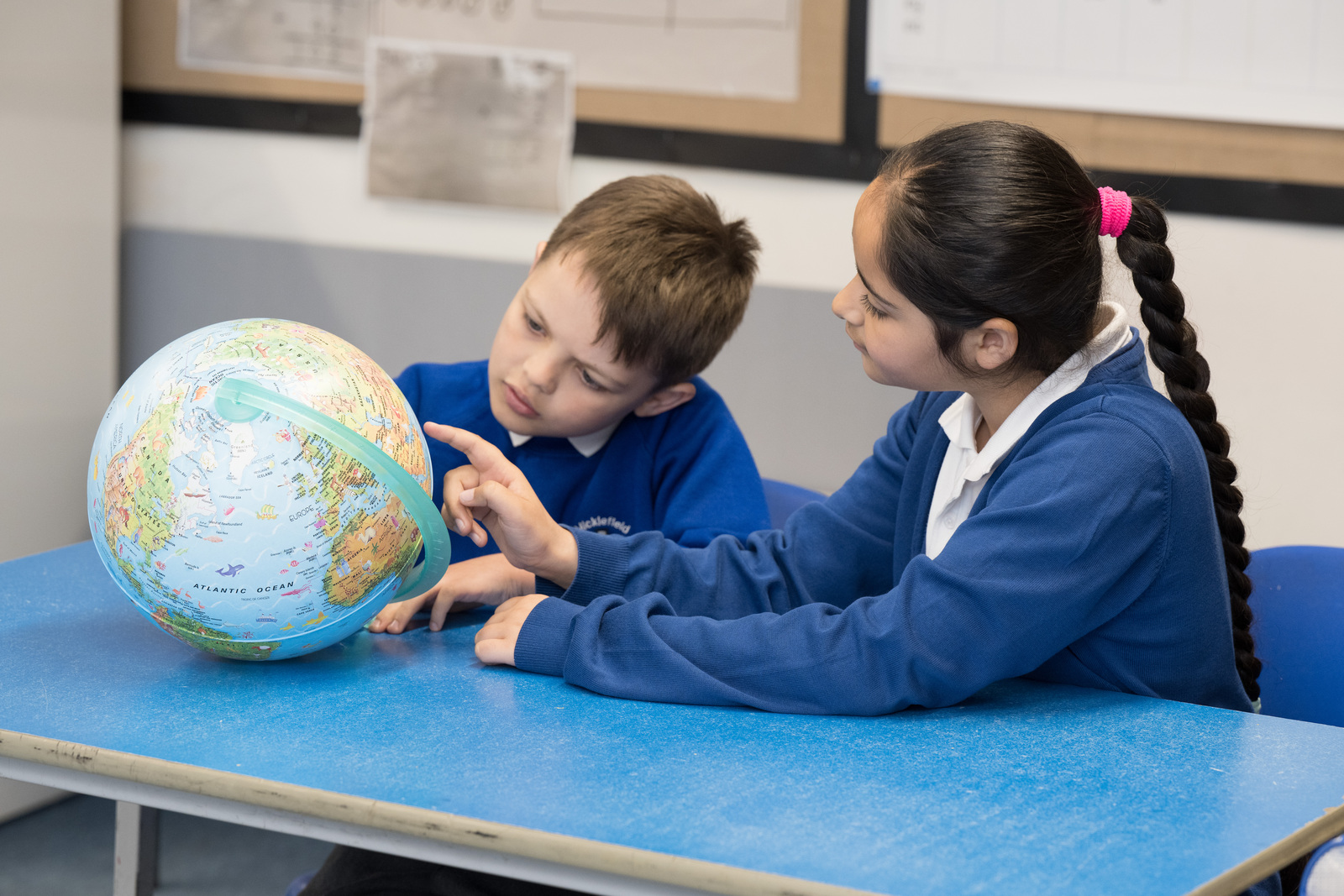 We seek to inspire in our children a curiosity and fascination about the world and its people which will remain with them for the rest of their lives. We want our children to gain understanding and have practical experiences of geographical knowledge and skills that explain how the Earth’s features at different scales are shaped, interconnected and change over time, and gain an appreciation of life in other cultures.
We seek to inspire in our children a curiosity and fascination about the world and its people which will remain with them for the rest of their lives. We want our children to gain understanding and have practical experiences of geographical knowledge and skills that explain how the Earth’s features at different scales are shaped, interconnected and change over time, and gain an appreciation of life in other cultures.
As Geographers, our children will:
- Develop an excellent knowledge of where places are and what they are like
- Build an understanding of the ways in which places are interdependent and interconnected and how much human and physical environments are interrelated
- Use geography subject specific vocabulary effectively
- collect, analyse and communicate with a range of data gathered through experiences of fieldwork that deepen their understanding of geographical processes
- interpret a range of sources of geographical information, including maps, diagrams, globes, aerial photographs and Geographical Information Systems (GIS)
- Be able to reach clear conclusions and develop a reasoned argument to explain findings
- communicate geographical information in a variety of ways, including through maps, numerical and quantitative skills and writing at length.
- Have opportunities to develop practical geographical skills and techniques through fieldwork
- Develop a sense of curiosity about the world and the people who live on it
Art
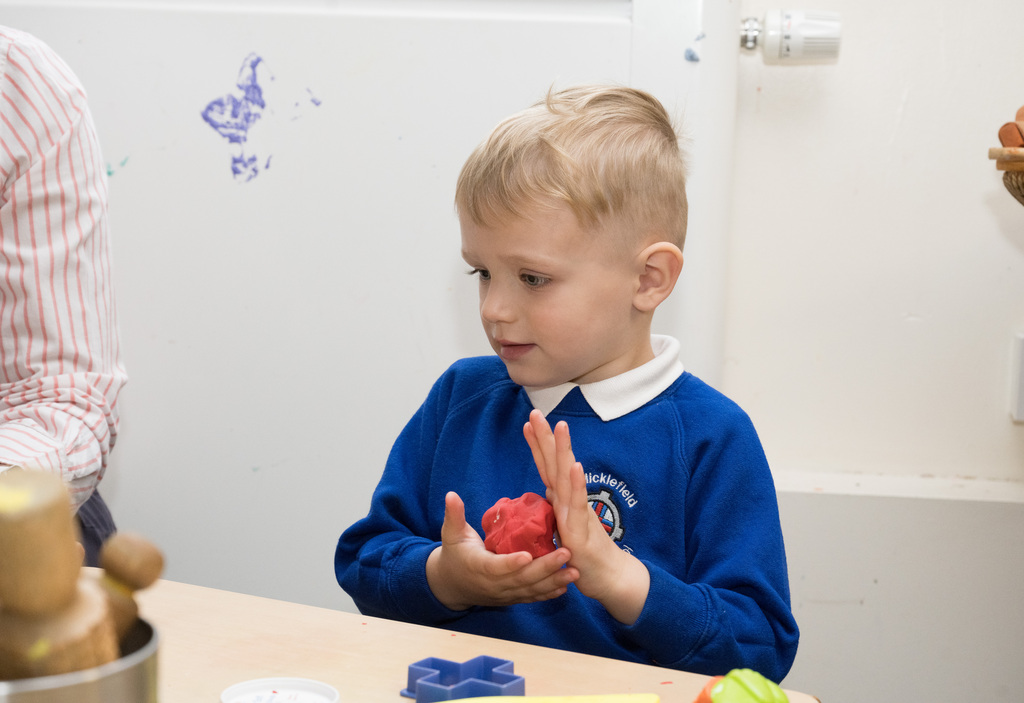 We value Art as an important part of our children’s entitlement to a broad and balanced curriculum. Art and Design provides the children with opportunities to express their individual thoughts and ideas through developing key art skills. Our aim is to engage, inspire and challenge children, equipping them with the knowledge and skills to experiment, invent and create their own works of art.
We value Art as an important part of our children’s entitlement to a broad and balanced curriculum. Art and Design provides the children with opportunities to express their individual thoughts and ideas through developing key art skills. Our aim is to engage, inspire and challenge children, equipping them with the knowledge and skills to experiment, invent and create their own works of art.
As artists, our children will:
- Become proficient in drawing, painting, sculpture and other art, craft and design techniques Select and use materials, processes, and techniques skilfully and inventively to realise intentions
- produce creative work, exploring their ideas and recording their experiences
- Use visual language skilfully and convincingly to express emotions, interpret observations and convey insights
- Reflect on, analyse, and critically evaluate their own work and that of others using the language of art, craft and design
- Develop a strong knowledge and understanding of other artists, craft makers and designers and understand the historical and cultural development of their art forms
- Develop independence, initiative, originality, and a passion for art which they can use to develop their creativity
PE
We recognise the importance of PE and the role it must play in promoting long term healthy lifestyles. We intend our PE curriculum to inspire all of our children to want to succeed and excel in competitive sport and other physically demanding activities and ensure they have opportunities to compete in sport and other physical activities in order to build character and help embed values such as fairness and respect. We believe that by providing these opportunities children are also able to learn and develop transferable skills such as cooperation and collaboration.
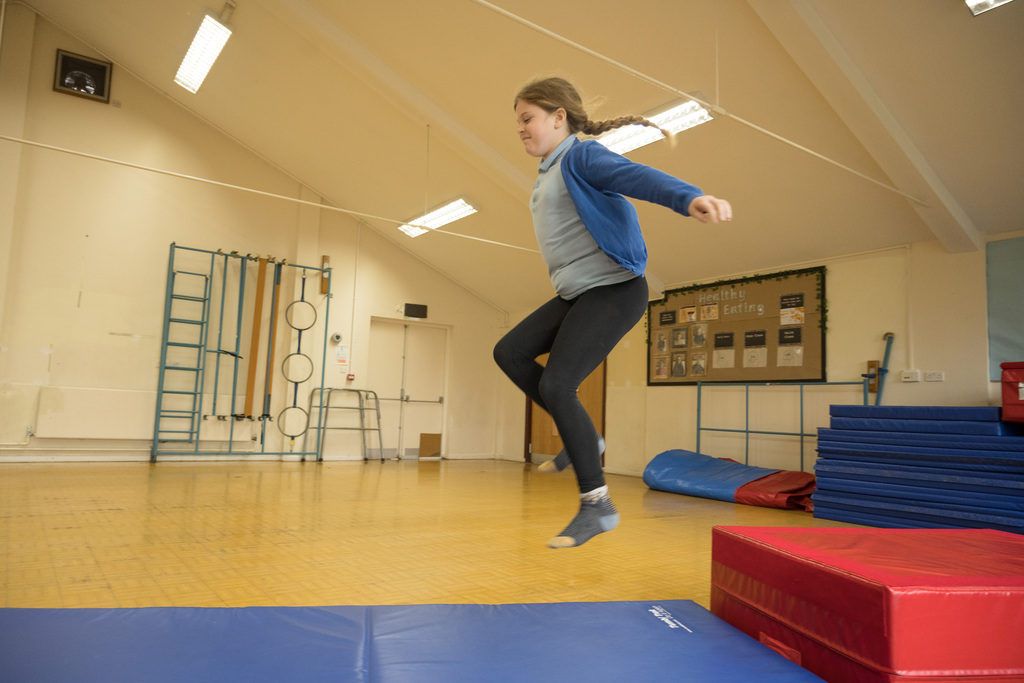 As physically active citizens our children will:
As physically active citizens our children will:
- Develop competence to excel in a broad range of physical activities
- Be physically active for sustained periods of time
- Engage in competitive sports and activities
- Lead healthy, active lives.
You can find out about our use of the PE & Sport Premium here. [internal link to Pupil Premium & PE & Sport Premium page]
PE and Sports Long Term Plan 2023-2024
Music
Music is a universal language that embodies one of the highest forms of creativity. The aim of our music curriculum is to engage and inspire our children to develop a love of music and their talent as musicians, and so increase their self-confidence, creativity, and sense of achievement. Our intention is that our children gain a firm understanding of what music is and develop an enjoyment of it through listening, singing, playing, composing, analysing, and evaluating a wide range of music from all genres.
As musicians, our children will:
- Perform, listen to, review, and evaluate music across a range of historical periods, genres, styles and traditions, including the works of the great composers and musicians
- Learn to sing and to use their voices, to create and compose music on their own and with others
- Have the opportunity to learn a musical instrument, use technology appropriately and have the opportunity to progress to the next level of musical excellence
- Understand and explore how music is created, produced, and communicated, including through the inter-related dimensions: pitch, duration, dynamics, tempo, timbre, texture, structure, and appropriate musical notations.
Design & Technology
We believe Design Technology should foster enjoyment, satisfaction, and purpose in designing and making things and enable children to question ideas and talk about how things work using subject specific vocabulary.
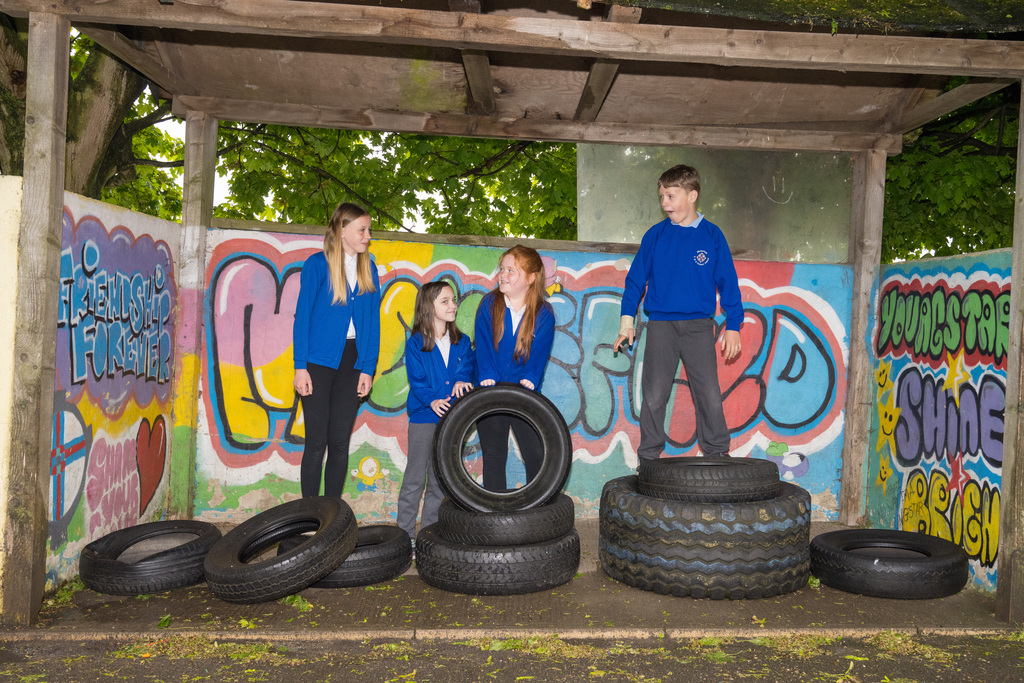
As designers, our children will:
- Develop the creative, technical, and practical expertise needed to perform everyday tasks confidently and to participate successfully in an increasingly technological world
- Develop a thorough knowledge of which tools, equipment, and materials to use to make their products
- Select appropriate tools and techniques when making a product
- Develop a growing body of knowledge, understanding and skills to design, make prototypes and products for a wide range of users
- Follow safe procedures and manage risks well
- Use time efficiently and work constructively and productively with others
- Carry out thorough research, show initiative and ask questions to develop detailed knowledge of users’ needs
- critique, evaluate and test their ideas and products and the work of others
- Develop creative, technical, and imaginative thinking to become creative problem solvers with a willingness to take creative risks to produce innovative ideas
- Build a knowledge of up-to-date technological innovations in materials, products, and systems
- Understand and apply the principles of nutrition and learn how to cook
Curriculum Enrichment
Curriculum Enrichment
Clubs and Groups
We offer a variety of clubs throughout the year, both after school and during lunchtime. Recently, we offered the following opportunities: Choir, MultiSports for KS1 & KS2, Football, Gardening Club and Library Club
Trips and Visits
At Micklefield Primary Academy we believe that educational visits and visitors are a fantastic way to bring learning to life for children. We have carefully planned our range of visits and visitors to ensure that children have a wide range of cultural opportunities which link to their learning, embed their knowledge and widen their life experiences. Here are some recent visitors and school trips we have enjoyed.
Visitors: Buddy dogs: Wates Construction; Andy's Bees; Road Safety Visitors from Leeds City Council.
Visits: St Mary’s Church; Local Walks; Jorvik; Leeds Art Gallery; Eureka; Whitby; Young Voices;
